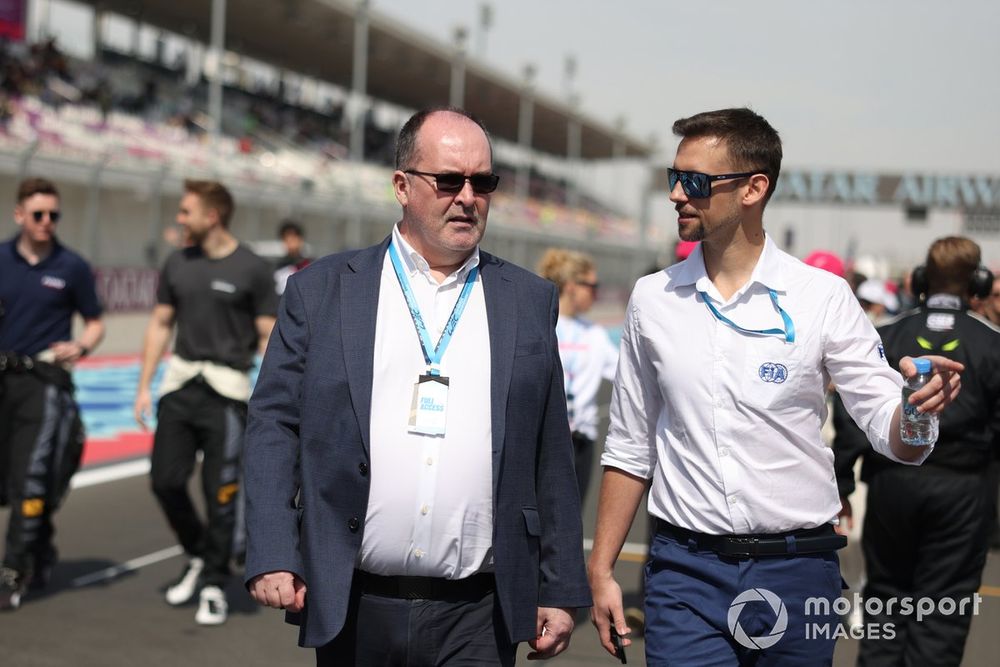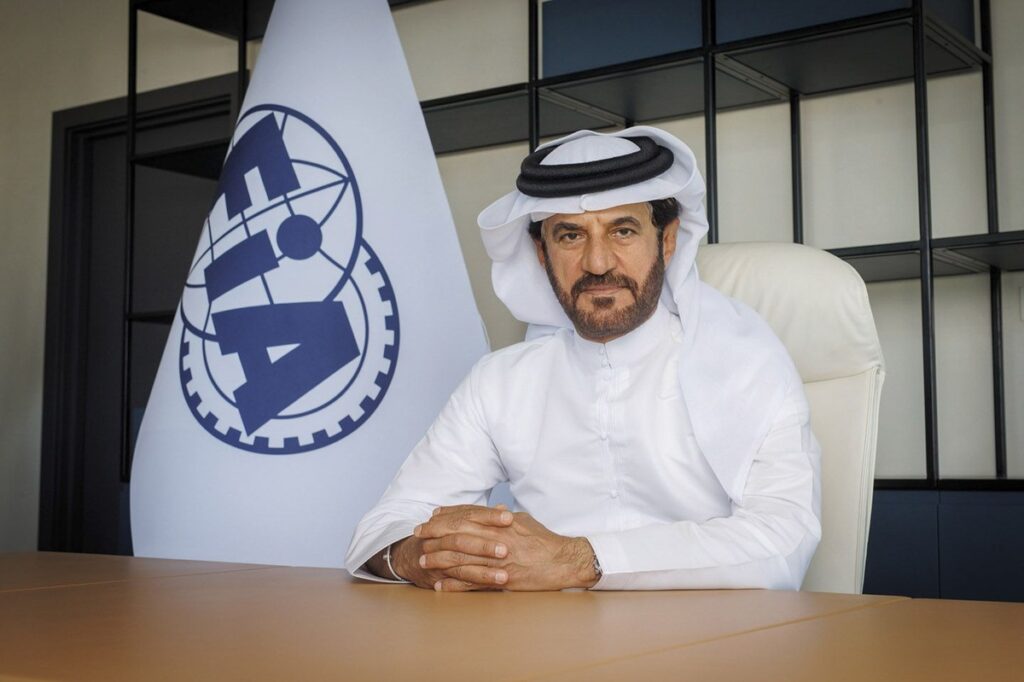“If someone wants me to win, they just have to say the wrong words to me: ‘You can’t do it.’ As soon as I hear that, I’ll do everything to win.”
These are the words of FIA president Mohammed Ben Sulayem in an interview with GP Racing magazine last year and they sum up his appetite for a fight. The declaration letter of support for his presidency signed by 36 automobile clubs, plus Fabiana Ecclestone as FIA vice president for Sport – South America, from across the world is nothing less than a pre-emptive strike against Carlos Sainz Sr, who recently announced he was considering a bid to challenge Ben Sulayem at the next election this December.
Making a run for the FIA presidency is a mathematical challenge as well as a political one. Each potential candidate must also draw up a so-called ‘list’ of confirmed supporters to run on their ticket.
So, the aspiring presidential candidate must have on their ‘list’ a deputy president and seven vice-presidents for sport, and a deputy president for automobile, mobility and tourism. Of the vice presidents, there must be two from Europe and one each from Africa, Asia-Pacific, North America, South America, and the Middle-East and North Africa regions.
This ensures any potential presidential candidate must demonstrate global support before they can stand for election. But the FIA statutes demand members must declare themselves for just one candidate (they cannot appear on more than one ‘list’).
An incumbent president can therefore block challengers by gaining the total support of just one region. It has happened before: when David Ward called off his challenge to Jean Todt in 2013, he did so because 11 of the 12 North American auto clubs had already pledged support to Todt.
This appears to be Ben Sulayem’s gameplan now. It may be counter-intuitive to those who exist in the Formula 1 ‘bubble’, but F1 is by no means the FIA’s sole focus – in fact it is a relatively small, if disproportionately prominent, area of the business.
Mohammed ben Sulayem, FIA President
Photo by: Sam Bloxham / Motorsport Images via Getty Images
When Ben Sulayem last ran for president in 2021, he was unopposed. But that was because he already had the numbers on his side.
“If you ask me if I was confident that I was going to be president of the FIA, I’ll say yes,” he said in that GP Racing interview. “Yes, I was. It’s not ego. Work and be smart. And follow up. I see things that maybe other people don’t see.
“I remember during my campaign they were telling me all about this social media: ‘Oh, we can get you this and that number of followers.’ I said I have 235 clubs and associations and half of them are supporting me. There are 120 left. So why do I need the millions on social media? Just focus on the 120 left. If I get even 50 of them, I will have won.”
It’s very rare for a sitting FIA president to be challenged come re-election time. When Max Mosley replaced Jean-Marie Balestre in 1993, Mosley was already the president of FISA (the FIA’s sporting arm, then separate) and had been so for two years; he persuaded Balestre to step aside and accept the role of chairman of the yet-to-be-formed FIA Senate.
Mosley’s strategy of offering to do the job for free and stand for re-election a year later swung the numbers towards him and his only challenger, Royal Automobile Club vice-president Jeffrey Rose, withdrew before a vote was cast. Mosley was re-elected unopposed for four terms; after he stepped down in 2009, Jean Todt defeated Ari Vatanen for the presidency.
In Todt’s re-election year Ward came out against him but then withdrew, complaining that Todt had moved the goalposts in terms of how many regional vice presidents were required to support his candidacy.
There are those who suggest that further changes to the FIA statutes, to be voted on at the General Assembly next month, represent another step towards strengthening the incumbent’s position.

Robert Reid, FIA
Photo by: JEP / Motorsport Images
Ben Sulayem’s regime has been polarising in some regards. When Robert Reid resigned from his deputy president for sport role in March, he highlighted what he saw as a deterioration of open and transparent governance, and a move towards centralisation of executive power under the president.
This is not what Ben Sulayem promised in his campaign manifesto: indeed, the declared aim was for him to be a hands-off president who would appoint a CEO to run the FIA’s business, including motor racing, along the lines of proper corporate governance.
In this context it’s interesting to note that the support letter from the auto clubs thanks the president for delivering on his manifesto – and does so in its first paragraph. The following passage is also unequivocal: “We are all acutely aware of the catastrophic financial situation you inherited. Without the decisive and bold actions you took from day one, the very future of the FIA would have been at risk.”
This assertion is rather less open to debate. The FIA’s financial position has been precarious, and it is difficult to look beyond Mosley’s ‘long lease’ of the F1 commercial rights to Bernie Ecclestone for a pittance in the early 2000s as the strangling of a potential income stream.
The record $100million fine levied against McLaren after the ‘Spygate’ scandal in 2007 sent to the FIA Foundation, a separate entity.
Todt put great energy into improving the governing body’s financial position but when Ben Sulayem took over as president, the FIA was running at a double-digit financial loss; it has recently reported an operating profit of €4.7million. It’s interesting to note that Ben Sulayem has also given an interview recently in which he highlights how much more income participants in F1 are able to draw than the FIA and its employees.
The context and timing of this, ahead of the support letter from member clubs, indicate Ben Sulayem’s line of attack will be based on numbers rather than words. And as his previous electioneering success demonstrates, you can talk as much as you want about lofty principles and corporate governance, but these are just words.
Whereas you can’t argue with numbers.
In this article
Be the first to know and subscribe for real-time news email updates on these topics
Subscribe to news alerts
Read the full article here

